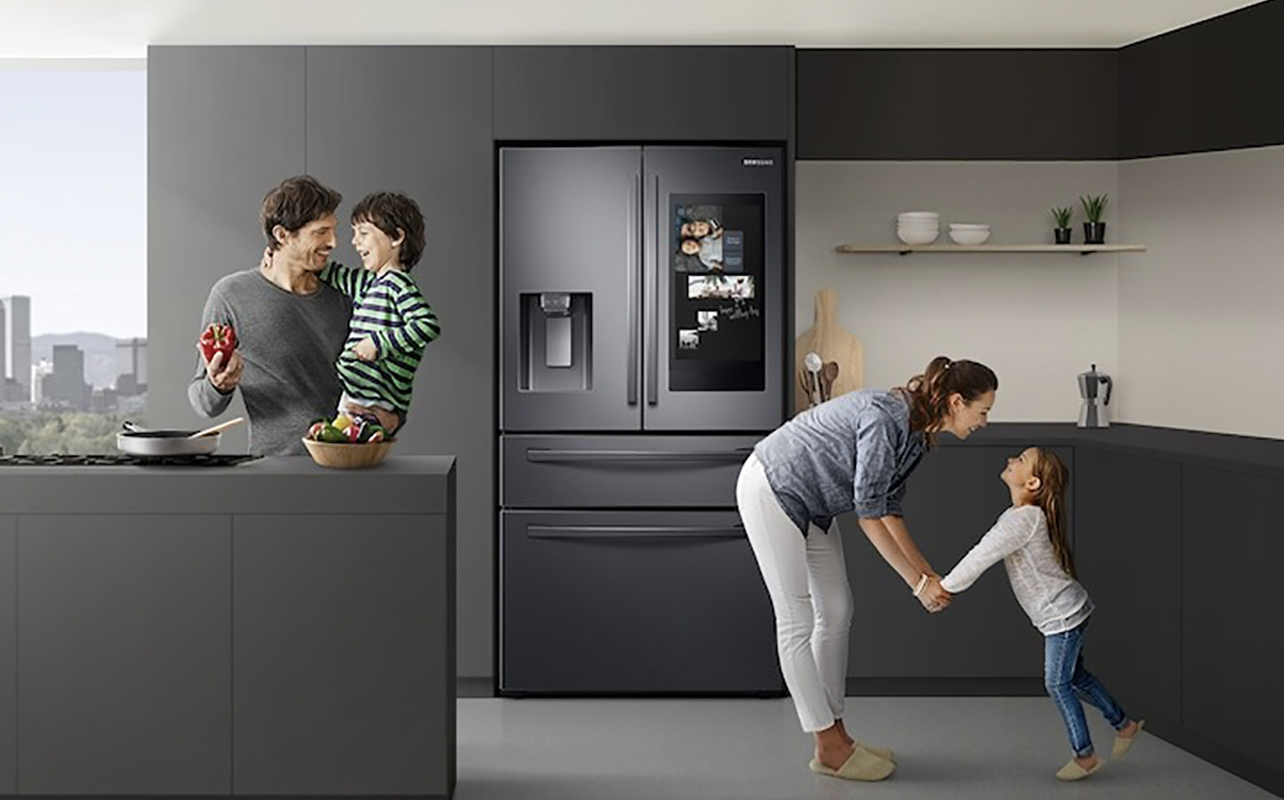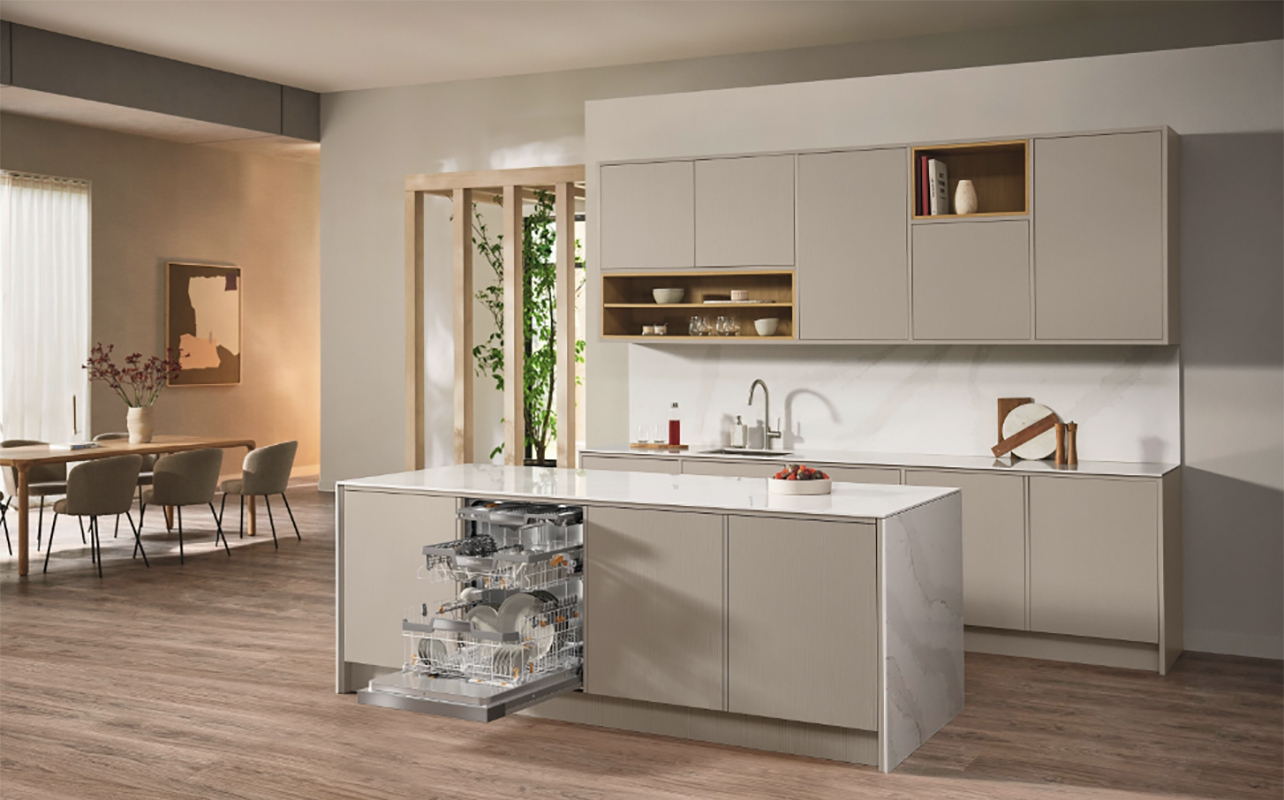
So, you’re ready to upgrade your kitchen, laundry room, or other rooms of the home with smart appliances. What are they, how do they work, and are they worth it? Smart appliances are connected via Wi-Fi, Bluetooth, or both. This allows you to automate processes, enjoy the benefits of AI technology, and even remotely control them using an app.
It’s no surprise given the convenience, intuitive operation, and cost savings that smart appliances are rising in popularity in Canadian homes. In this article, I’ll outline what types of smart appliances are available at Best Buy Canada. I’ll also discuss their key features, how they work, and most importantly, how you can benefit from them. Finally, get help deciding if they are worth the investment based on your personal needs, home set-up, and lifestyle.
What are smart appliances?

As noted, smart appliances can connect to your home network through Wi-Fi and/or Bluetooth. They often communicate with companion mobile apps as well as smart voice assistants like Alexa and Google Assistant. Some can integrate with wider smart home systems. So, a smart coffee maker can start brewing automatically every morning at 7 a.m., for example. Or a smart robot vacuum can be set to clean every Friday at 4 p.m. before you arrive home from work. With remote control, you can set a smart dryer to tumble again if you’re running late. You might also be able to tap into cameras in your refrigerator to see what groceries you need.
With features like built-in AI, smart appliances can also do things like intelligently set cycles. This could be a washing machine when you add delicates or linens or a dishwasher that detects heavily soiled dishware. Many can also detect issues and send notifications so you can act accordingly.
How smart appliances work

Smart appliances work through built-in intelligent features as well as via connectivity and control via a smartphone app or even voice. Some collect data and automate processes. An example might be ordering milk when a smart fridge detects you’re running low. Or a smart thermostat can adjust when you’re on vacation or if the temperature outside has uncharacteristically dropped or raised significantly.
As noted, some can integrate with an overall smart home system. A smart oven might start to preheat when you tap into a recipe in its companion app. A smart thermostat may adjust when you trigger “vacation mode” from your smart assistant app.
Many smart appliances support automatic software updates and remote diagnostics. If there’s an issue, you can check the app to learn more about what it could be or follow troubleshooting tips to try and fix it. Failing that, the app can connect you with a remote support team for diagnosis.
What kinds of smart appliances can you buy?
Virtually every appliance category has a “smart” option among the mix. Here’s a breakdown of some of the most common ones you’ll find.
Smart large kitchen appliances
From smart refrigerators that have displays on the front and/or high-tech technology inside to smart ovens that can assist while cooking, and even smart and connected dishwashers with app control and cycle notifications, you can find smart alternatives in all major kitchen appliance categories.
Smart small kitchen appliances
Smart small kitchen appliances include microwaves and convection ovens with auto-sensing for preset cooking functions, coffee makers and espresso machines with one-touch and/or scheduling options, and multicookers and air fryers with smart cooking functions.
Smart laundry appliances
The latest, most premium washers and dryers, including standalone units as well as pairs and even washer dryer combo machines, come with smart features built in. This can include features like automatic detergent dispensing or cycle sensing. There’s plenty of new tech for washer dryer sets that make them smarter than ever. Even AI is transforming all-in-one washer dryer combos as well.
Smart cleaning appliances
Set up schedules with a smart robot vacuum that can run autonomously, even avoiding obstacles. Invest in a robot mop (or vacuum and mop combo) that can tackle wet mopping of your floors at the push of a button. Smart upright and cordless stick vacuums and smart air purifiers are becoming more common nowadays, too.
Smart climate control
A smart thermostat can save you not only energy but also money. They accomplish this by automatically adjusting based on ambient temperature and your habits and schedules. Meanwhile, smart air conditioners and heaters can do the same, running on predefined schedules, or only when needed based on built-in sensors.
Benefits of smart appliances

Now that you know what smart appliances are and what types of smart appliances you can get, the question becomes why bother getting them in the first place? There are numerous reasons beyond the “cool” factor.
Convenience and remote access
Smart appliances add convenience. You can often control them remotely, set schedules, troubleshoot issues, receive notifications, and more from a connected smartphone or other mobile device. They can help make your life easier and automate otherwise time-consuming processes.
Energy efficiency and cost savings
A periphery benefit is energy efficiency for the home. If a thermostat adjusts heating or cooling when you aren’t home, that helps save on energy bills. A smart fridge that intelligently cools or has specific temperature-controlled drawers can preserve food for longer. A smart washer that detects the soil level of clothes and adjusts the cycle as needed further saves water and energy. In the long run, this ends up saving you money as well.
Improved performance through automation and alerts
Automating mundane tasks is at the heart of smart appliances. You get overall improved performance since tasks are completed as needed, and in the best way possible to help you get the most out of the technology. Alerts, meanwhile, keep you apprised of when the roast is done cooking in the oven, for example, or when you should toss the clothing in the dryer to avoid wrinkles.
Maintenance reminders and troubleshooting support
Smart appliances can send useful alerts through a mobile app, like when a filter needs to be changed or cleaned, a problem is detected, or a new part needs to be ordered to avoid usage interruptions. If you run into an issue, you can connect with a mobile support team or get troubleshooting tips to help with diagnosis without having to dig for the paper manual, search online, or schedule a repair.
Drawbacks and considerations

Smart appliances aren’t perfect, and they might not be for everyone. There are a few things to consider before jumping in with both feet.
Higher upfront cost
Smart appliances tend to be more expensive than their non-smart counterparts. So, while you get plenty of benefits, they do come at a delta in price.
Compatibility and connectivity issues
To get the most out of smart appliances, you’ll need reliable Wi-Fi at home and the latest smartphones and other devices to ensure compatibility. You’re best to stick with a brand that fits within the ecosystem you use as well, whether that’s Samsung, LG, or smart assistants like Alexa or Google Assistant.
Learning curve
There may be a slight learning curve with smart appliances, as there is with any other smart home device. If you’re new to smart devices, consider upgrading other areas of the home first before delving into smart appliances. This might include a smart speaker and smart lighting to test the waters first.
Are smart appliances worth it?

Overall, smart appliances are worth it for the benefits they provide in convenience, energy efficiency, and long-term cost savings. They modernize your home since they are usually the sleekest, most premium options on the market. But consider your lifestyle, household size, and comfort level with technology before making the switch.
If you live in a small home, for example, or have elderly and/or non-tech-savvy individuals in the household, you might find that smart appliances aren’t a good fit. Though with at least one tech savvy person in the home to set up and manage things, everyone will reap the benefits.
Tech-savvy households big and small are prime candidates for smart appliances. Think of a home with multiple kids who are constantly opening and closing the refrigerator door and where you do a lot of cooking and cleaning. Or households that do multiple loads of laundry every week. Busy families and single individuals working long hours, alike, will find value in smart appliances.
What to look for when buying smart appliances

Once you have decided to take the leap, there are a few considerations you should make before settling on smart appliances.
Compatibility with existing smart home ecosystem
If you already have smart devices in the home, consider getting smart appliances that are compatible with them. For example, a Samsung smart fridge might be able to communicate with your Samsung smart TV in some way. Hisense offers its ConnectLife ecosystem for all its smart devices. With LG, all its compatible smart devices can be managed through the ThinQ app. Consider compatibility with voice assistants as well, like Amazon Alexa and Google Assistant, if you have a smart speaker from one of these brands in your home.
Brand reputation and app quality
Ensure that you’re selecting smart appliances from a brand with a top-notch reputation and one that has an easy-to-use app. Rely on reviews and research to help you choose, advice from expert Best Buy employees, and your prior experience with the brand.
Warranty and support
Look into warranty and support options to ensure that the smart appliances are sufficiently covered. Easy access to support is important should you have questions, concerns, or require assistance with new parts or warranty fulfillment. Some smart appliances offer remote diagnostics in the app so you don’t even have to call tech support. Assistance can be provided remotely to help you diagnose the problem to avoid a service call.
Upgradable software and features
As with any tech product, smart appliances should be upgradeable for the latest features and bug fixes. It should be simple to update the software through a mobile app to consistently get the best experience possible.
Final verdict: Should you make the smart switch?

Now, it’s decision time. Should you upgrade to smart household appliances? The decision comes down to weighing the benefits versus the drawbacks. There’s a higher upfront cost, but with the convenience and automated features, you can save money in the long run. This is through things like reduced food spoilage, preserving the integrity of your clothing, assistance while cooking, and water, electricity, and energy usage. If you aren’t tech savvy, start smaller with a smart speaker and smart lights before diving into smart appliances.
For smaller households with simpler needs, smart appliances might be overkill. But for busy households with jam-packed schedules, consistent travel, or multiple kids or family members, there’s value in smart appliances. They can remove guesswork, automate tasks, and ensure the home runs on your schedule and not the other way around.
If you decide that smart home appliances are for you, get expert advice and explore the many trusted smart appliance options at Best Buy Canada.





